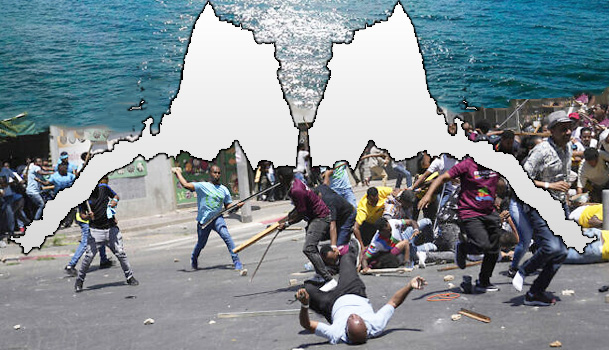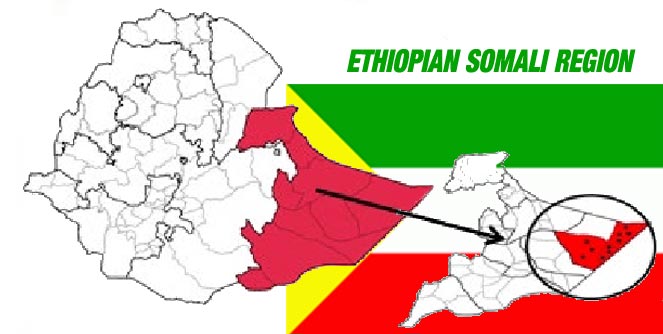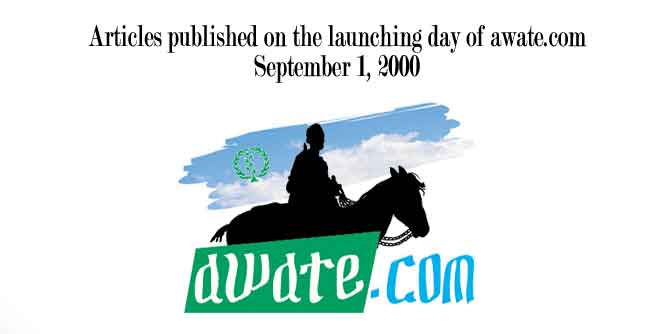The Dilemma of Eritrean Diaspora Movements – Article review

“The Eritrean Diaspora Opposition Movements: Obstacles and Challenges”, A Master thesis, Linné University, Sweden, by Berhane Kidane, spring term, 2022.
“Eritrea Diaspora pro-democracy Blue Revolution movement: From where to Where”, by Aron Hagos Tesfai, published by Martin Plaut, March 21, 2024.
Defining the issue
The Master thesis by Berhane Kidane (2022) and the short history of a new diaspora movement known as the Blue Revolution (2024) by Aron Hagos Tesfai are interesting studies both for what they tell as well as for what they omit.
As it transpires from the title, Berhane’s master thesis is primarily concerned with the obstacles and challenges facing the Eritrean diaspora movements. The study is based on interviews with leaders of various (political and civic) organizations as well as an acceptable survey of the international literature on the subject.
Berhane Kidane writes, “a primary challenge, is to overcome “the historically inherited fault lines causing regional, ethnic and religious differences” which haunt the diaspora opposition movements. These fault lines rob the diaspora movements of a crucial capital, that is mutual trust. Berhane writes (2022:40) that the interference of the Eritrean government (through coercion, corruption, threat, and co-optation) has an immobilizing effect on the potential of diaspora opposition to advance political change in their country of origin. Systematically harassed by the Eritrean government (here defined as a transnational actor), the chronically disunited Eritrean diaspora movements have very little chance of being relevant in bringing an impact on the Eritrean mainland, unless, they succeed “to achieve a much higher degree of organizational and political coherence than is now the case, as well as a far greater degree of public trust among the Eritreans”.
His conclusion is quite dismal. p. 46. “[T]he transnational regime mechanism and the disunified reality of the opposition are the core factors for the survival and the persistence of the regime” (Berhane Kidane, 2022:46). I think Berhane Kidane ought to have elaborated a little more on the links between the two. The issue is not the survival of the Eritrean regime but rather the capacity of diaspora opposition to defeat the regime. Berhane Kidane is not sure.
My take is that it is the inherent weakness or incapacity (owing to dynamic fragmentation) that has and still contributes to the continued survival of the Eritrean regime. Indeed, the Eritrean regime has a very effective transnational presence, but it can only reach those Eritreans who can and want to be reached. If the transnational activities of the Eritrean regime bring havoc on the diaspora community, most of the blame has to be on the diasporans themselves, because it is widely known that the Eritrean regime has always been dependent on its diaspora citizens for economic and financial support. But it has to be clear that the powers of the Eritrean transnational activities are limited by law and each one of the diaspora Eritreans can escape or flee from its long arms.
At the same time as Berhane Kidane defended his MA thesis, the Eritrean diaspora opposition, commonly as known as Blue Revolution, made its presence loud and clear in Giessen, Germany, in July 2022. In the first encounter, thousands of recently arrived Eritrean refugees in Germany marched to where “the supporters of the Eritrean regime were having their annual cultural/political festivities. “During the demonstrations”, writes Aron Hagos, (2024:3), protestors [from the Blue Revolution] disrupted the events by engaging in physical confrontations, including fist fights, and using objects like stones, sticks and bottles against the regime´s supporters. … As a result, numerous casualties, including police officers, and a significant number of -Eritreans from both sides were jailed and properties were damaged, including police cars. ” This was repeated in Giessen in October 2023 and in many other European and North American cities, including Israel. The objectives of the blue revolution protest were, “to drain the regime’s [the Eritrean government] fertile source of income and expose the illegal activities of its institutions and loyalists who persistently abuse the democratic system of the host countries” (Aron, 2024:3).
Aron Hagos (2024:7) continues and writes the blue revolution was “born from discussions of totally immobilizing the enabling institutions and loyalists of the regime in the diaspora”.
Aron Hagos explains the origins of the Blue Revolution due to two factors. The first is that “the Eritrean regime used the festivities to spread hate campaigns against Tigray people, and secondly, it used it for militarizing the diaspora community as well as terrorizing the opposition.”
Aron Hagos further writes that the Blue Revolution is driven by a youth focused social media and geared to draw the attention and involvement of the local and international communities to the transnational repression carried out by the Eritrean regime against diaspora opposition but is “unfortunate that many of them ended up in violence” (Aron, 2024:8). The author does not comment on the violence initiated and carried out by the Blue Revolution against those Eritreans (allegedly supporters of the Eritrean regime) who were peacefully celebrating cultural/political events. The mayhem that the supporters of the Blue Revolution brought about is a gross violation of democratic rights of people residing in democratic states.
In conclusion, Aron Hagos expresses high faith on the objectives of the Blue Revolution, that is “to overtake the legitimacy and authority of the Eritrean regime at home and abroad. And finally, Aron Hagos writes that “the Blue Revolution is a game changer in Eritrea diaspora politics” and believed that it would overcome the obstacles that have hitherto weakened and divided diaspora movements. And finally, Aron writes (2024:10) that the Blue Revolution has “understood the role of the International Community in Eritrean politics, but the opposition has to be unified and collaborate with it. So the Blue Revolution is a demonstration to the International Community (IC) that a unified pro-democracy movement is in the making”.
Alternative Explanation of the “Blue Revolution”
The origins of the Blue Revolution can be traced to the war between the regional state of Tigray and the Ethiopian state that started in November 3, 2020. No matter of who started the war, the Tigrayan army bombed Asmara and openly declared that Tigray was at war with Eritrea as well. If Eritrea had been secretly conspiring against Tigray up to November 2020, it became directly involved first to thwart any pre-emptive action from Tigray and secondly to settle old score.
The war in Tigray, that is officially between the Ethiopian government and the regional state of Tigray led to a deep division among Diaspora Eritreans. The supporters of the Eritrean regime in the diaspora, who, until the war in Tigray were being greatly isolated by the combined politics of the diaspora opposition, got a new lease of life. In the words of Nicole Hirt (2015:132) “The effects of the [United Sanctions] on the diaspora are remarkable: before the sanctions, lots of people were participating in the fundraising parties of the government, but now that they rent a hall for 1,000 people, only 200 show up”. (See the seminal article by Nicole Hirt, “The Eritrean Diaspora and its impact on regime stability: Responses to UN sanctions”, African Affairs, vol. 114, January 2015, pp. 115–135. [her source is Yared-Fessehaye, Oslo, co-founder of the Eritrean youth movement for change].
The Eritrean regime presented itself as a victim of Tigrayan war of expansion and thus began to call its citizens in the diaspora to defend their country. The Eritrean embassy in Stockholm, for instance, managed to gather more than 16 000 people during the festivities of the 30th year of independence, in the early summer of 2021. As many Eritreans began to flock to the Eritrean embassy to express solidarity with their government, equal number of Eritreans began to support the Tigrayan army and its military objectives both in Ethiopia and Eritrea.
Eritrean diaspora opposition believed or wished to believe that the Tigrayan army was determined to defeat the regime of Isaias Afewerki in Asmara. The slogan Tigray would win (ትግራይ ትስዕር) (a slogan of the Tigrayan army) was adopted by the Eritrean diaspora opposition.
The alignment of Eritrean diaspora opposition on the side of the Tigrayan army went even deeper. Not only did the opposition support Tigray but it also begun to put forward the vision of a united Tigray – including the Tigrinya speaking region of Eritrea. To what extent this new irredentist politics is based on a sound reappraisal of colonial boundaries or whether it is simply a political position based on the logic of the enemy of my enemy is my friend, remains to be seen.
The war between Tigray and Ethiopia, with heavy involvement of Eritrea on the side of Ethiopia, came to an end in November 2022. The Tigrayan army raised a white flag, after losing up to 600,000 of its young men and women. Eritrea was spared a military invasion from Tigray.
In addition to the loss of lives, the war left Tigray, a hitherto poor region, in a far worse condition, at the tender mercy of former TPLF army/militia units roving the countryside and confiscating property of citizens. Law and order have become a scarce resource in Tigray.
I believe that it was the inherent weakness and loss of confidence to impact the politics at home that pushed Eritrean diaspora opposition to support Tigray. Hence, the defeat of Tigray on the one hand and the revival of pro Eritrean government diaspora Eritreans on the other laid the groundwork for a violent clash that started in Germany in the summer of 2022.
The white elephant in the room: the assimilation policies of host countries as an insurmountable obstacle
Neither transnational repression from the Eritrean regime nor historically inherited fault lines are the enemies of diaspora opposition. The most effective but intractable obstacle is the daily reality of life in diaspora, which is signified by better living standard and safety of life and property.
The great majority of diaspora Eritreans have no intention of going back to their homeland. Indeed, at old age, some might wish to return and some might even return but after they have renounced any political ambition or accepted the futility of opposition,.
Diaspora Eritreans in Europe and the Americas are offered either citizenship or permanent residence. With the passage of time, most of them become entangled with family, work, children, school, and the future. With time, diaspora Eritreans become immigrants and their homeland fades from their political consciousness and remains as an identity marker—a factor of considerable importance. Eritreans in the Americas behave like other immigrant communities with hyphenated identities, such as Swedish Americans, Ethiopian Americans, etc. This is a process that is supported and even pushed for by many host countries, which hope to gain the loyalty of ex-refugees by offering the latter the possibility (privilege) of becoming citizens.
Therefore, I believe that Eritrean Diaspora opposition has neither obstacle to overcome nor challenges that hamper its success. Diaspora Eritreans can indeed build communities to maintain their culture and remain in contact with their country of origin if they so wish. But those diaspora Eritreans who are safely settled in Europe, the Americas and Australia have no pressing reason to engage themselves in opposition politics. The reason is simple but effective. No diaspora Eritrean, I challenge, is willing to swap his/her life with a life that is being lived in Eritrea today and even tomorrow. Not even the supporters of the Eritrean regime are willing to return to Eritrea, where many of them made huge sacrifices to leave Eritrea behind. The same applies to the second-generation diaspora. In her article of 2023:8, Nicole Hirt wrote that , “she watched how second generation diasporans became estranged of their ancestral homeland due to the deteriorating situation since the introduction of the open ended national service in 2002, when returning to Eritrea for good became increasingly illusive, even for government supporters”. Her conclusion, on second-generation Eritreans, though quite well known to many Eritreans, is worth quoting in full: [Nicole Hirt, 2023: 37]
“I showed that attitudes to towards Eritrea are ambivalent among the second-generation diaspora, while most of them have predominantly positive feelings towards the country in which they grew up. Some have positive memories of early childhood visits to Eritrea or know beautiful memories shared by their parents. Some feel the indirect burden of the distant dictatorship and express immense gratitude towards their parents for having left the country for good during the struggle and thereby sparing them the life of servitude that has become the fate of their fellow Eritreans at home” [Nicole, Hirt, 2023, ´My Parents told me to love my country : Positionalities of second-generation Eritrean diasporas in a transnational setting”, Authoritarian States and their Next Generation Diasporas, December 18, 2023]. [Accessed July 15, 2024].
The slogan of “regime change,” repeatedly chanted by diaspora opposition movements, has not, to my knowledge, been contextualized. What does a regime change mean? There is, for instance, no government in exile that could explain the kinds of changes that could take place in various sectors of the economy and society.
Hence, it is not fair to condemn Eritrean diaspora opposition in the same way as Berhane Kidane has done. It is even not fair to expect politics of opposition from diaspora Eritreans. As hard as life and living in Europe and the US might be, diaspora Eritreans and their families have it much better and safer outside of Eritrea. Many have become immigrants, and Eritreans, like many other people, have the moral right to migrate. There are no material, urgent, or existential reasons for diaspora Eritreans to engage themselves in the politics of opposition.
The future is for civic and professional movements
I do not see any realistic future for Eritrean diaspora politics in Europe and the Americas. Transnational repression (which includes cooption and various threats) would continue against those who demand more transparent and democratic behavior from their government and its embassies abroad. Eritreans are divided by the government into three groups: i) supporters, ii) enemies and iii) non-involved in politics. The Eritrean regime does not suffer anyone who does not comply with its written and unwritten rules to the full. The regime has shut the country to diaspora Eritreans who do not go by the rules. A diaspora Eritrean who wishes to visit his country has to get clearance from the nearby Eritrean embassy.
The Eritrean regime is fully aware of the conditions of life of its citizens abroad. Isaias Afewerki is alleged to have said that diaspora Eritreans would return as corpses for burial. By intuition, I believe, Isaias knows that diaspora life is much better for his citizens and most certainly for his regime as well, where remittances make up up to 40 percent of government revenue. The Eritrean regime is fully aware of the services that he offers to his diaspora citizens by providing them with paraphernalia—flags and a narrative of nationhood that diaspora Eritreans can use as identity markers.
It may sound cruel not to wish success to the Eritrean diaspora opposition in general and the Blue Revolution movement in particular. There are many who believe that the Eritrean regime might collapse sooner than later, thus leaving space for the diaspora opposition. But the regime in Eritrea might not change, and even if Isaias exits the political arena, what follows might not be that different.
The Blue revolution movement has changed its strategy of struggle after learning the hard way that confronting the police with the intent of disrupting festivities was a heavy price to pay. The Blue Revolution does not any longer disrupt the festivities organized by the Eritrean embassy/communities. It dawned on the members of the Blue Revolution that they cannot break the rules by using violence and escape from the legal consequences of their actions.
What is the future for the Blue Revolution movement? Is it a passing phenomenon or more endurable? I think we can be certain of one thing. The gap between the Eritrean political culture (as interpreted and implemented by the Eritrean regime) and the culture of the host countries (including lifestyles) would grow, and as the gap continues to grow, the Blue Revolution (its members) would lose steam. What matters is not what people say but what they do. The corrupting nature of host countries on diaspora Eritreans ought not to be underestimated.
There are two important areas where Eritrean diaspora movements can operate and make a difference. The first area is in the field of education. The diasporans have the possibility of educating each other on the rich and diverse history and culture of Eritrea and its society. In such engagement programs, diasporans would teach themselves and also reach out to the population in Eritrea, especially when this knowledge is put in print. The second area is in the field of civic activities, where the more integrated diasporans devote time and energy to assist and help the newly arrived and educationally underprivileged Eritreans cope with the demands of life in Europe and elsewhere in the West, as well as the daily harassment and discrimination that are the fate of black and colored people. In this context, I believe that the Blue Revolution movement or some other movement could exist because it has an important function; it provides an essential space for diasporans to be together in that way, enabling them to break the alienating experience (various forms of racism and discrimination) that they face in their host countries.
Acknowledgements.
I am deeply grateful, as always, for the encouraging feedback from Tesfatsion Medhanie and Semere Habtemariam. I am especially indebted to Saleh Johar Gadii for publishing my review articles.



Awate Forum